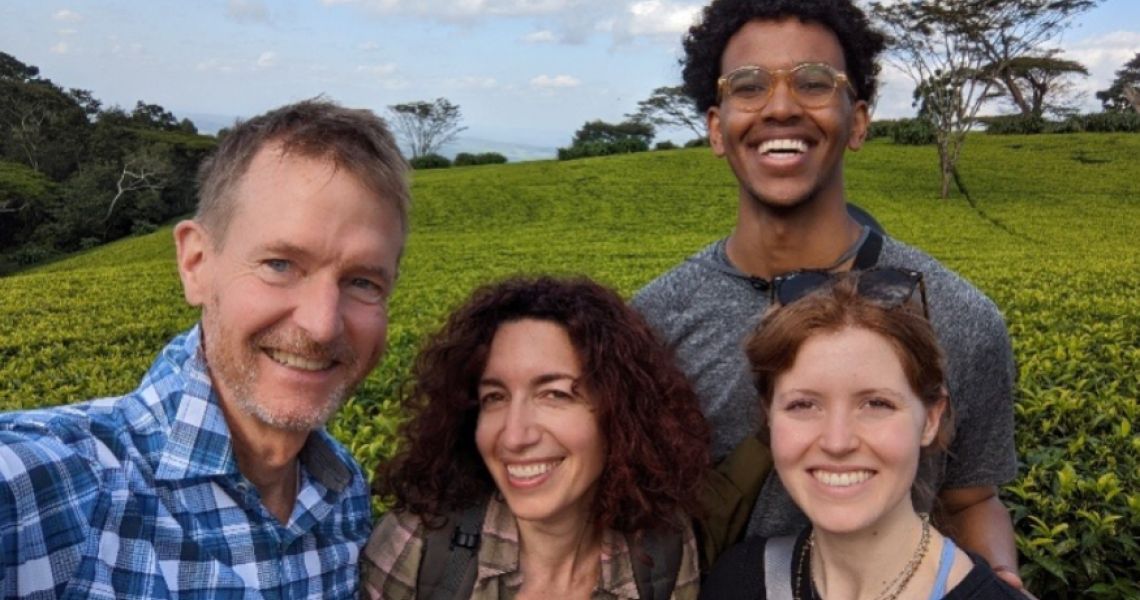Meet the dynamic student and faculty duo who spent the summer together in Blantyre, Malawi; Rami Imam, a second-year medical student in the Global Health Scholarly Concentration (GHSC), and his mentor, Douglas Postels, MD, associate professor of neurology and rehabilitation medicine, and of pediatrics. Postels has been treating and researching pediatric cerebral malaria in Africa with the Blantyre Malawi Project (BMP) since 2010 and moved to Malawi full-time earlier this year.
Through the GHSC, Imam was introduced to Postels, and together they planned an eight-week summer project abroad. The first interactions between the two left Imam itching to go to Malawi and join the BMP for three reasons: his interest in translating medicine from the United States to sub-Saharan Africa, his interest in pediatrics, and the promise of working with a communicative and organized mentor. Imam received the Gill Fellowship from GW SMHS, awarded to first-year students working on IRB-approved research, and the Christopher L. Barley Scholarship, awarded to students traveling to middle or low-income countries to support his travel and living expenses while in Malawi.
Cerebral Malaria (CM) is the most lethal and severe complication of malaria, and in most of Africa, it primarily afflicts children. Postels has shared that even with the best care available, one in six children with CM dies. One-third of survivors have neurological abnormalities, many severe. Several known clinical and laboratory findings are usually present during admission and are associated with bad outcomes. Among many, these include the depth of coma (children in a more profound coma are more likely to die) and blood glucose (children with lower glucose are more likely to die). Although there have been several attempts to create a way to predict which children are more likely to die or end up with neurological abnormalities at the time of admission to the hospital, past studies have had few patients enrolled, making their results difficult to interpret.
To evaluate whether an accurate scoring system can be used to predict outcomes, Rami and Postels retrospectively analyzed multiple clinical (vital signs, physical exam findings) and laboratory findings (all tests done at the bedside) from 1,700 children with CM. As described by Postels, this is important to determine which children are more likely to end up with bad outcomes at the time of admission, allowing them to be preferentially enrolled in new clinical trials to decrease rates of death and disability. The preferential enrollment of participants in clinical trials who may have a bad outcome is called "sample enrichment.”
The sample enrichment described would decrease the number of children needed to be enrolled in the study to prove whether the new treatment works.
Both Imam and Postels acknowledged the value of learning about health and medicine from a global perspective. Postels had a clinical rotation in the Caribbean during medical school that deeply impacted him. When asked about the importance of exposing medical students to global health, Postels explained that exposing trainees to working in environments other than the United States is valuable to understand that the American medical system is neither unique or the only way to practice medicine. "There are many diseases and ways of diagnosing and treating illness that students will fail to learn if they confine their medical exposure to the United States.”
Postels also believes that a commitment to working in global health, whether through research, clinical care, or teaching, means “committing oneself to medical social justice.”
It was due to Postels' invaluable experience of having a mentor to guide him through the transition of living and working in the U.S. health care system to doing so in Africa that he was inspired to become a mentor himself. When asked about the importance of mentoring students, Postels explained, “I am paying my debt back to the world by mentoring the next generation, just as my mentor did many years ago. My hope is that my mentees will benefit, just as I did.”
Since returning to the United States, Imam has reflected on how working in lower-resource settings impacts clinical care and the type of physician he wants to become. Imam said he “quickly realized that the physicians at the BMP have an extremely high aptitude for conducting clinical exams with minimal resources, allowing them to provide a very high quality of care.”
Comparing this to the United States, where patients commonly undergo multiple laboratory tests and imaging, Imam recognizes that technology might not always be available. He plans to “work [his] clinical reasoning muscle as much as possible, making it strong and confident” during his remaining years in medical school and residency. With his mentor's help, we are confident that this goal will become a reality.
The Office of International Medicine Programs (IMP) at GW SMHS would like to commend Postels and Imam for their hard work and dedication to the global health initiatives at GW, in Malawi, and worldwide.
